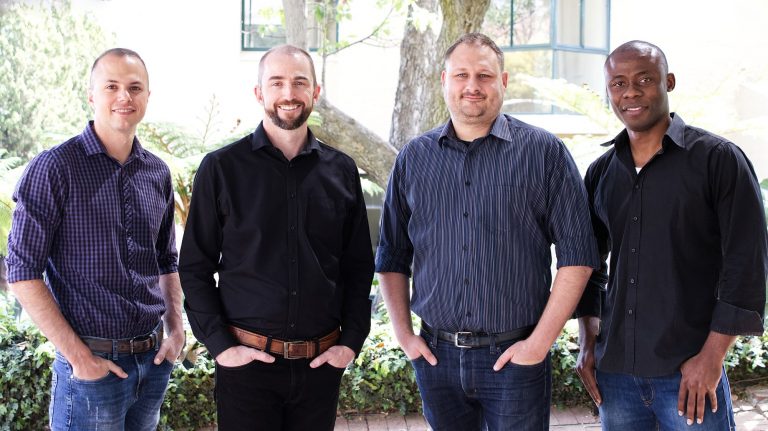What NOT Using A Top Software Development Team Could Cost You

So, you want to implement custom software for your growing business? Well, there’s a lot of things that need to be considered. One of the main ones being the cost of hiring a skilled team to develop the software for you.
Unfortunately, this is not something that can be answered simply. There are just too many factors that go into hiring the right team to build your software.
There is one simple answer that is relevant to this conversation though. You should not hire just because a developer is cheap.
This may sound contradictory. Don’t worry, we’ll explain.
Here are some of the main reasons why you should NOT hire someone cheap.
Have You Ever Wondered How Much It Costs To Recruit A New Programmer? The Numbers May Surprise You.
Why it costs so much
The first question you probably have when researching software developers is “Why are they so expensive?” The answer is that there is a lot of work that goes into building custom software, and nothing cheap or badly made will ever last very long and be effective.
The one main reason that software development is so expensive is that it literally takes a village of people to make it work.
It’s not as simple as slapping some code together and making it look pretty. Coding and programming a stunning and usable site or app can take months and even years to make if done properly.
Software is never truly complete and so you’re not only paying for the initial cost of making the software but you’re also paying for the upkeep of the end product.
So what exactly are you paying so much money for?
Well, first and foremost you are paying for the time of a team of skilled individuals to build software, not just a single developer.
Secondly, you are paying for their tools and the resources that they need. Such as any coding tools they need to buy in order to make you the best code they can.
Thirdly, you are paying for their experience and knowledge in a highly technical field that few will ever truly become good at.
For example, for one project to be correctly planned, executed, and delivered, a team would involve:
| Team | Percentage of time dedicated |
| Product Owner | 20% |
| Product Designer | 25% |
| Senior Developer | 100% |
| Mid Developer | 100% |
| Junior Developer | 50% |
| Tester | 25% |
To get the job done, each of those people on the team needs to get compensation for their work.
Time is money
The age-old saying “time is money” definitely applies to software development. This is one of the core reasons to hire top developers.
Why? Well, when someone has less experience or is less motivated to do the work it can go one of two ways: they may rush the work (which we will get into more later), or they’ll take too long to get it done.
I mentioned earlier that good coding and software development does take time, however, there is still a deadline that needs to be stuck to.
A lot of times when you want custom software you want it done quick enough so that you can get it into people’s hands for testing.
If you get a cheap one-man-job developer for a big project you face the risk of them not being motivated to work a full day and slack off, which is something that happens all too often, this then leads to deadlines not being met. This can ultimately lead to investors getting annoyed and possibly pulling their investment.
Meaning you’re losing money while still paying a lot to someone who is essentially doing nothing to forward your business objectives.
A rushed product is probably not well done
Underestimating the project completion time is another warning sign that somebody will not be able to produce the proper work. Therefore it is not worth your time or money, if their work is rushed.
It’s a known fact that when things are done in a rushed manner that they’re not done to their best ability.
Mindless errors are made and this can end up compromising your entire project.
Once again less experienced and less motivated developers are often the people who rush their projects to get it done and move on to the next one. They don’t double-check or even care too much about what they are doing.
If this happens to you and your company, you may stand the chance of having to hire someone to fix these poor mistakes, and having to pay them to fix them, or even in some cases start over again, when it could have been done right the first time had you hired the right people.
Quality VS Cost
The question remains “does a low-cost developer mean I am getting a low-quality product?”
The simple answer is yes.
Let’s use the example of going out to eat somewhere. When you go out to eat and you want something very cheap and fast you won’t expect the quality of the food to be amazing, nobody goes to McDonald’s expecting a 5-star burger.
However, if you were to go to the most expensive restaurant in your city, you would expect the quality to be amazing, someone to greet you at the door, a wine list and even a bread basket, all the small additions that make the time more special and “worth it”.
The same goes for software development. If you want a top-quality product you can’t expect to get it from a cheap and less experienced developer, that would be like going to McDonald’s and expecting a glass of champagne with your meal.
So you decide to go for the more cost-efficient option, you pay them a boatload of money, you wait patiently for the software and in the end, you have low quality and poorly functioning product. You then decide you want better quality and so now you have to go and pay another developer or a developing team double the money to fix the mistakes and raise the quality.
This leaves you spending 3x the amount of what you expected to pay for the low-cost option when you could have just gone for a professional development team and had a once-off payment and had a top-quality product.
This is something we’ve observed multiple times, not just some sales gimmick to make you spend more on software development. The number of junk builds that have to be completely redone because of quality cuts is not a small number.
Pro Tip: Going for high-quality in the first place is one of the smartest moves you can make and will actually save you money in the long run.
Software Quality Means Many Things
So what is quality software?
Aspects of quality software include:
- user experience (UX),
- efficient coding that uses machine resources well,
- the look and feel of the software,
- lack of bugs,
- intelligent development roadmap rolled out on schedule,
- and, most importantly, a product that achieves the goals you set for it.
Obviously, your user is going to be the person whose opinion you care about the most because at the end of the day they’re the ones buying and using your software.
A customer wants to use something that is easy to use and understand and delivers them what they’re looking for. They also don’t want to spend hours inside documentation or manuals to learn how it works. In the eyes of the consumer, this is quality software.
Quality software does not solely depend on UX. There are internal structures that also determine whether or not the software is top quality.
Poorly coded software may appear to work well on launch, but as soon as you’re ready to scale you find that the code was structured so inefficiently that the resources you’ll need become very expensive to run it. This again can mean the need for a rebuild.
Other considerations when it comes to quality:
- Is the code easy to hack?
- Does it have a good internal architecture that makes future updates and add-ons straightforward?
- Was the software intelligently developed in phases with good market validation? If you aren’t market testing your product as you go, you’re almost guaranteed to have a lower quality result.
These are all aspects that make up the overall quality of your software, and having just one of these aspects done at a lower quality can affect the entire product.
Even The Best Teams Continually Improve Their Code
The world of software and coding is one that is constantly growing and always learning.
The one thing to understand about custom software is that because it is an ever-changing industry there is always going to be a learning curve and a chance to improve. This means sometimes even the best developers won’t get it right immediately.
As an example, just take a look at how many software products Google has made that have been trashed.
The difference however lies in the effort put into fixing the errors and constantly learning more about the newest technology.
Top developers are likely to continually take new courses and training to stay updated on everything in the industry and are constantly learning. They ask other developers’ opinions and try to learn from those around them.
Whereas low-cost developers may not be bothered. Their lower cost means they need to churn out your project fast and move on to the next one.
How The Lack Of Training Could Cost You More
Training is a vital part of the success of many businesses, especially in the tech world.
As we mentioned previously the software industry is constantly evolving, which makes training even more important.
It’s important to hire people who are well trained otherwise they could be confused leading them to compromise the project.
It’s also worth looking into hiring more formally trained professionals as opposed to someone who just has a general interest in the subject and some amateur experience.
I repeat.. Hiring software developers with the right skills the first time around will save you time and money.
Actual Cost Of A Bad Developer
So you’re probably wanting to see some numbers on what the actual cost of a bad developer is, well I’ll break it down a bit for you… you might be shocked.
For the purpose of this example, we’ll just use one person. In reality, it takes a team to get a project going.
It takes on average just over 8 weeks to dismiss a bad hire, meaning that you would have already paid the bad developer an amount of money ± R380p/h. If they are being paid to work 40 hours a week, you will be paying ± R 121 600 in those 8 weeks.
So now after already paying those rates, you need to hire somebody new to fix the errors, so you can multiply that number by 2, at least, which will then be what you’ve spent so far just on hiring a person.
Now think about the costs that it will take to fix the mistakes that were made…
The new developer may also use technology that comes at a cost but adds extra security to your site, necessary to stop hackers. They might make other intelligent choices as well. This can often mean starting your project from scratch.
So not only have you lost R240K but also 8 weeks plus any time you took to hire the new developer.
Not only could a bad developer cost you a ton of money and time but it could also cost your reputation.
Let’s say you decide to use the software that the developer made for you because you can’t see any mistakes and didn’t check it through anyone who may know a bit more about the topic. Then people start to use the software and things go wrong.
People lose trust in you and your product because they had a terrible experience with it.
So now, even if you get all the problems fixed and spend the extra money, there is no guarantee that the consumer will use your product again because your reputation has been ruined and you end up losing everything you have invested into the product in the first place.
Bad Developers = Bull In a China Shop
Besides the costs (and hidden costs) here’s an easy way of seeing the disadvantages of hiring less-than-amazing developers…
The saying Like a bull in a china shop is defined as “a person who breaks things or who often makes mistakes or causes damage in situations that require careful thinking or behavior”
This perfectly describes what it is like to have a team of bad software developers.
If you have bad or careless developers in the team, there is a high chance that they break many aspects of your product, which causes you to spend more money and time trying to fix the problem.
Each member of the team has tasks which they are supposed to do. If he doesn’t do these tasks the other team members suffer and are not able to do their part of the project efficiently.
There is also the chance that they create a toxic work environment. Other team members may get demotivated when things aren’t being done on time, when there is no communication, or when the overall work ethic is bad. This can even cause valuable members to step down from the team which is a big risk to your product.
How We Can Help You
Co-Foundry is a software development partner with over 100 successful projects. We use modern technologies and agile product management to release early and release often so you meet end-user demands.
Our team of Product Managers, Designers, Testers and Web Engineers have years of experience. We’ve built websites, mobile apps, and complete web-based applications.
We’re here to help you make the best possible app or platform. Let’s get it right the first time and get you a real return on your investment as soon as possible.
Get in touch with us today and we will make sure you get a top-quality product that is worth every cent.

Want Help With Your Software Project?
Get Our Free Ebook: How to Build Winning Custom Software – A Guide For Businesses and Entrepreneurs
By subscribing, you agree to get emails from Co-Foundry. We’ll respect your privacy and you can unsubscribe at any time.






